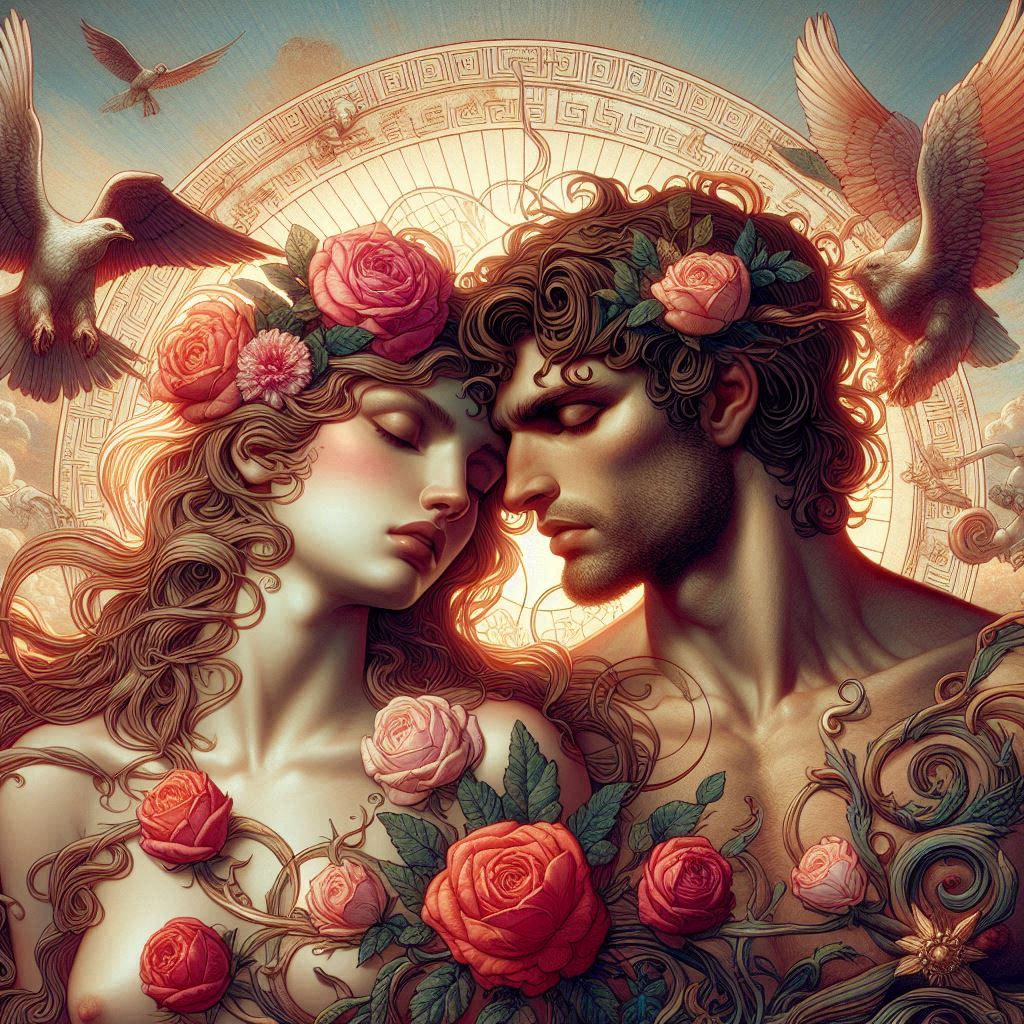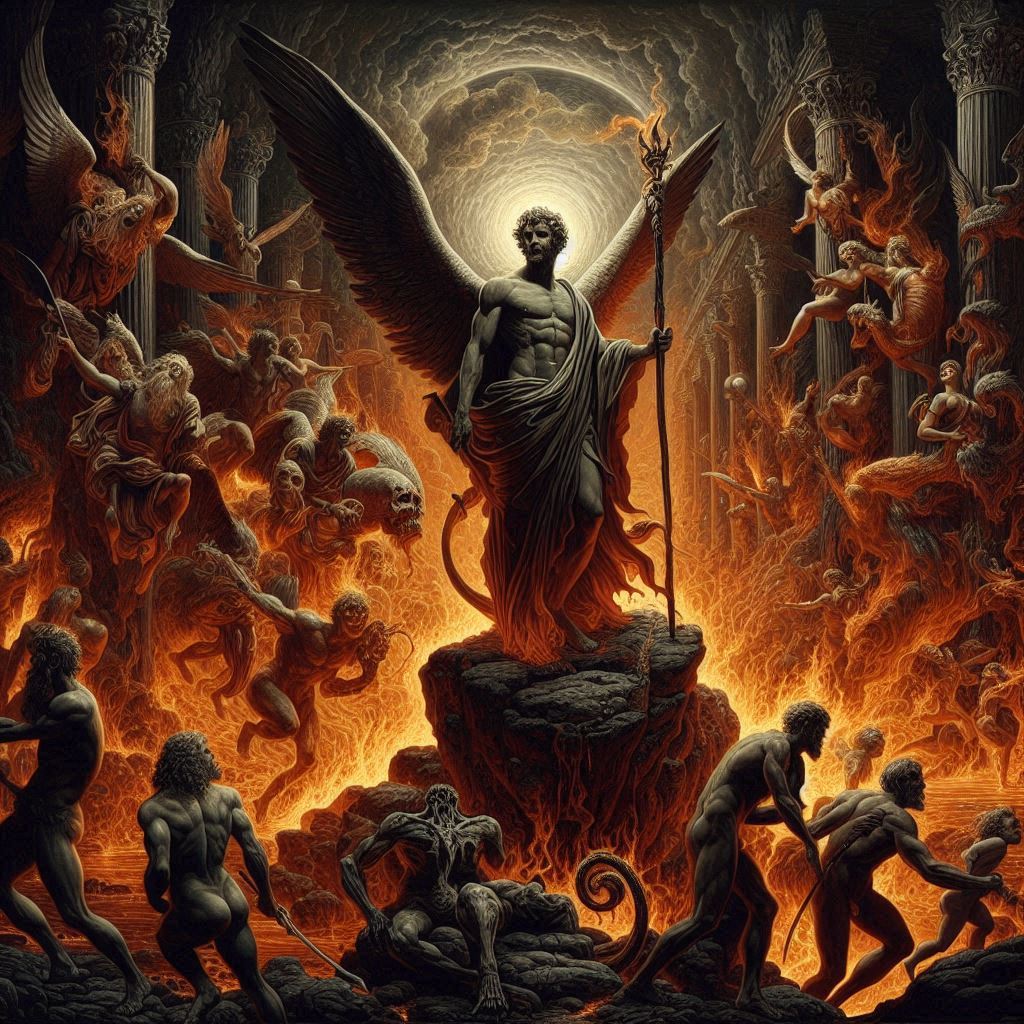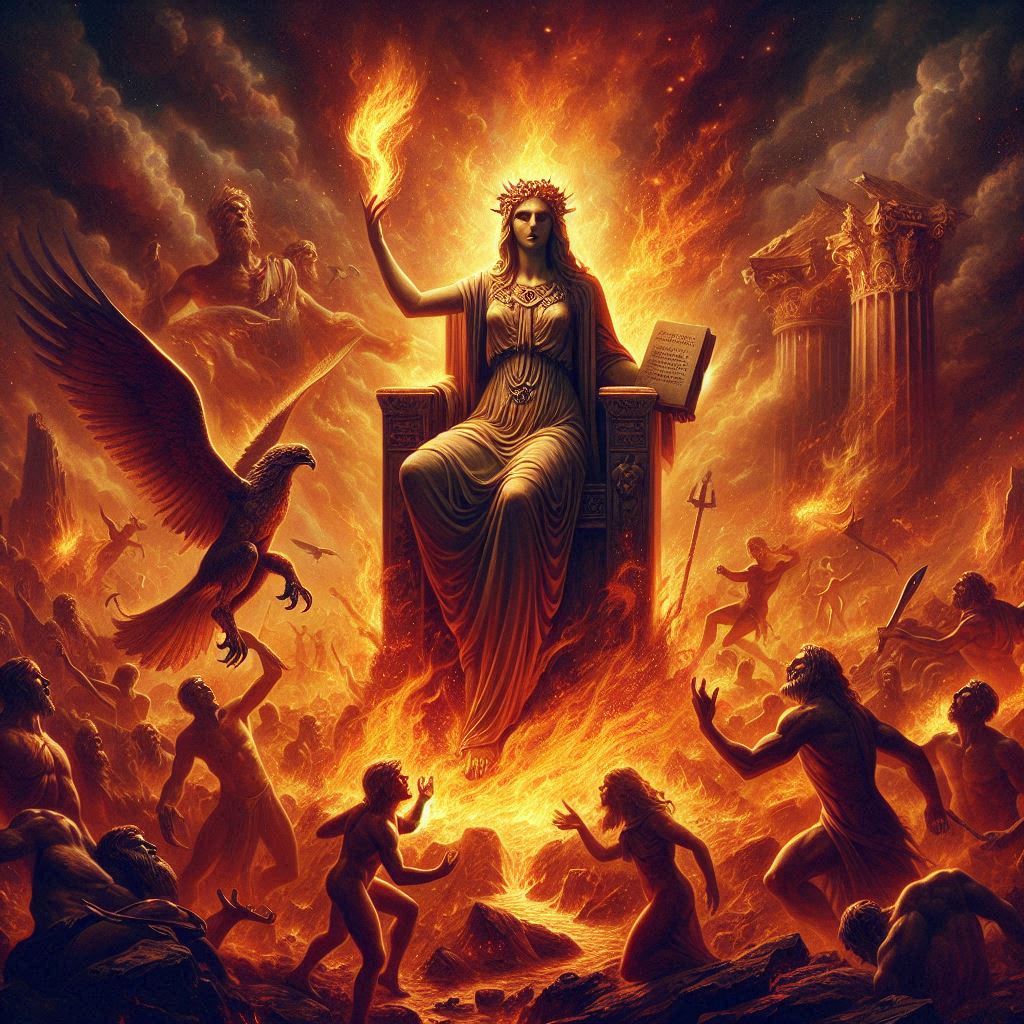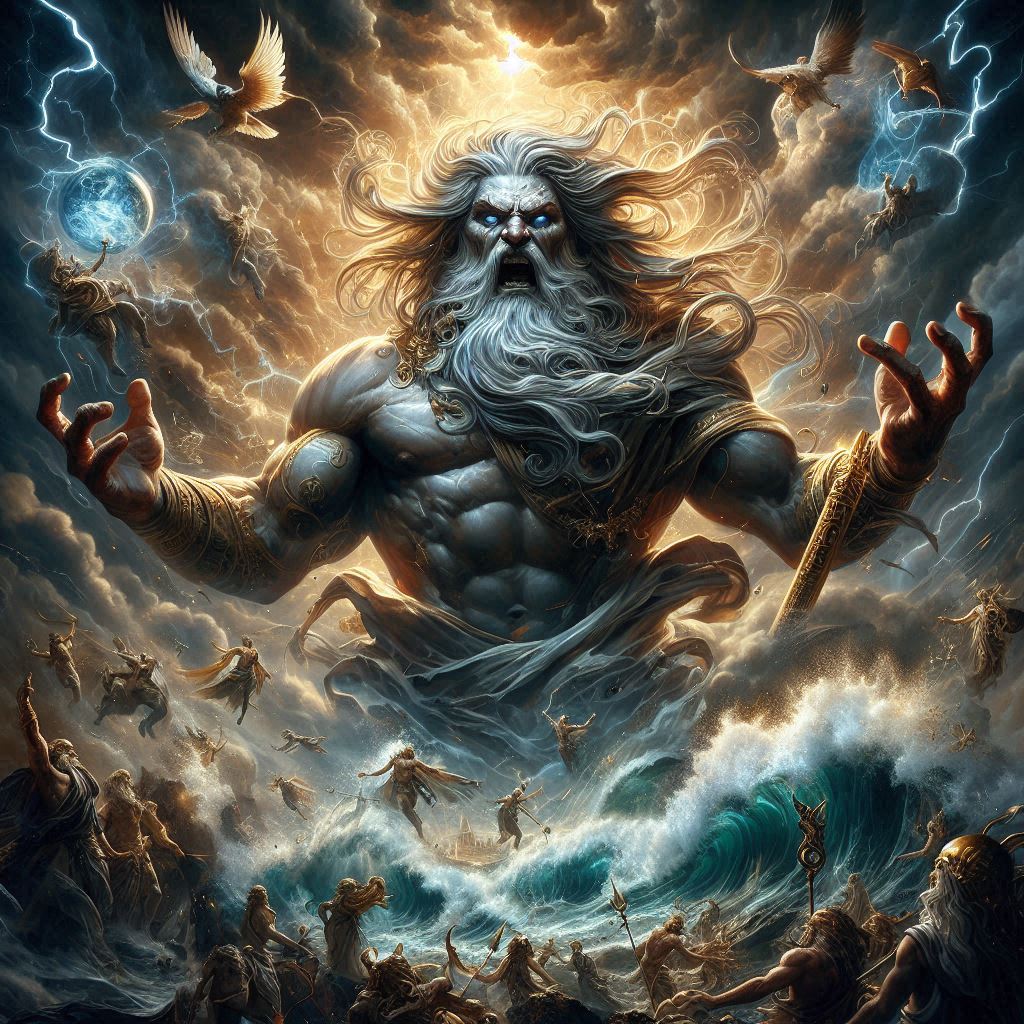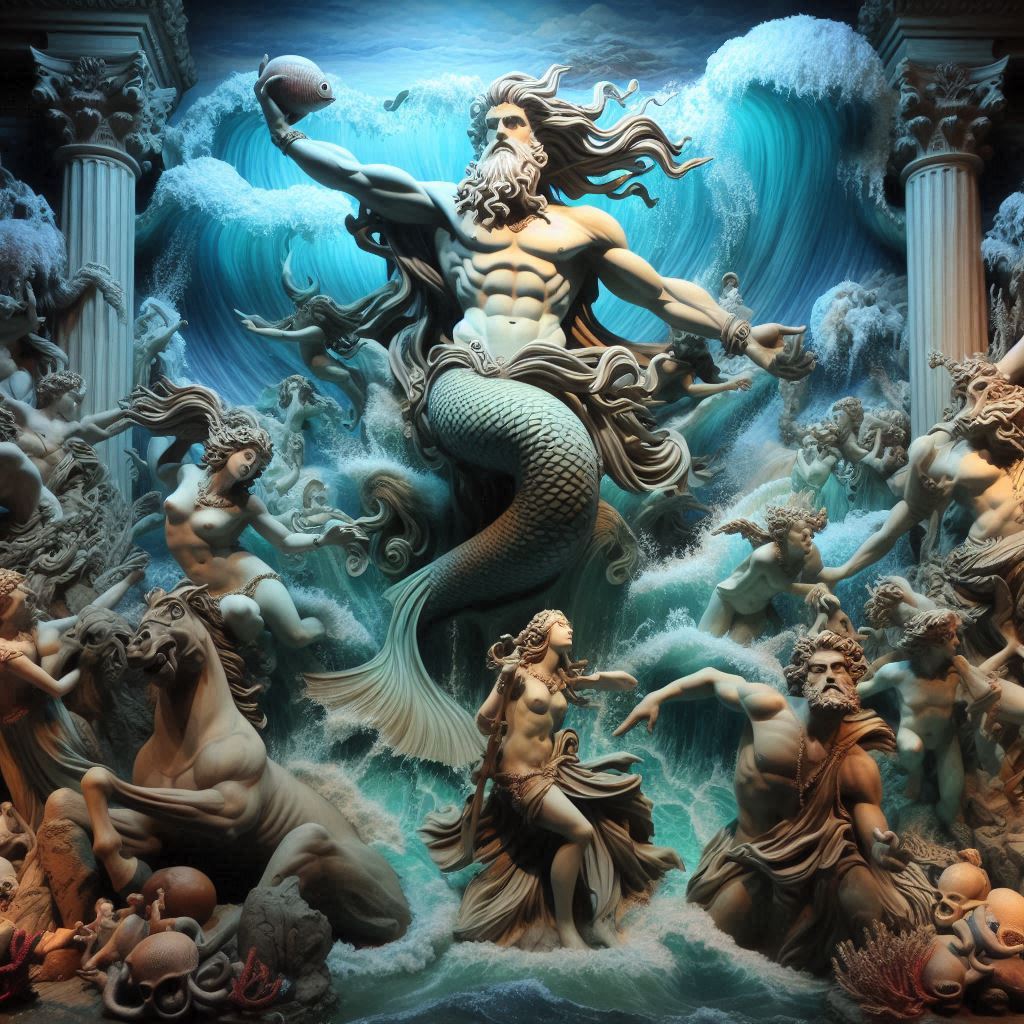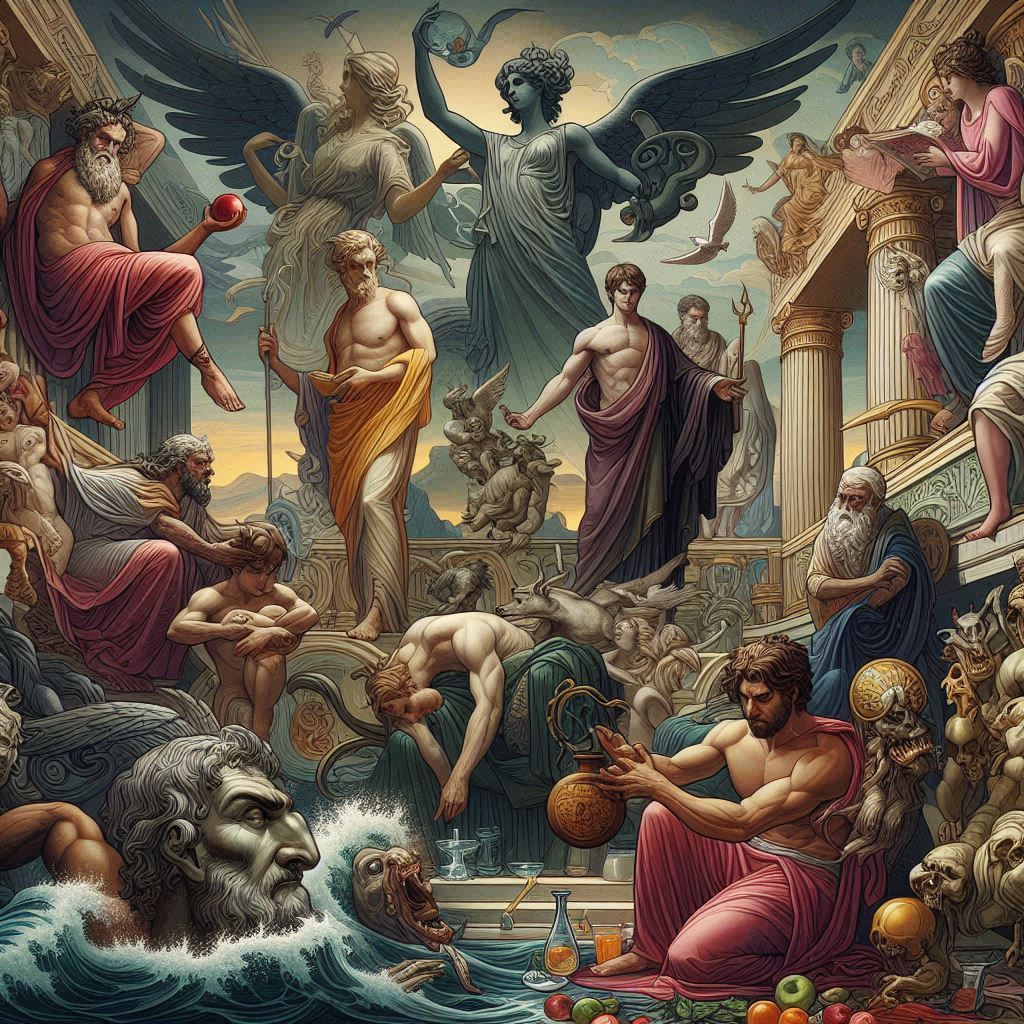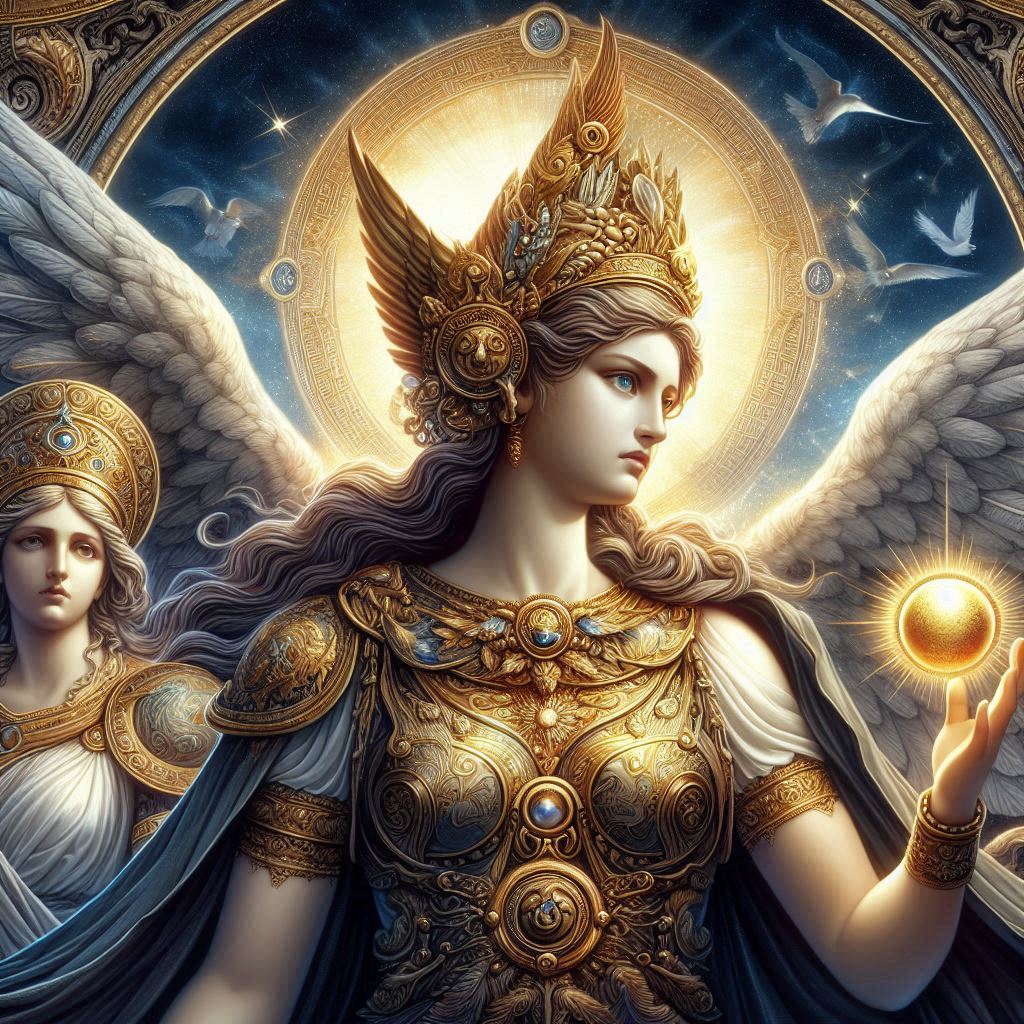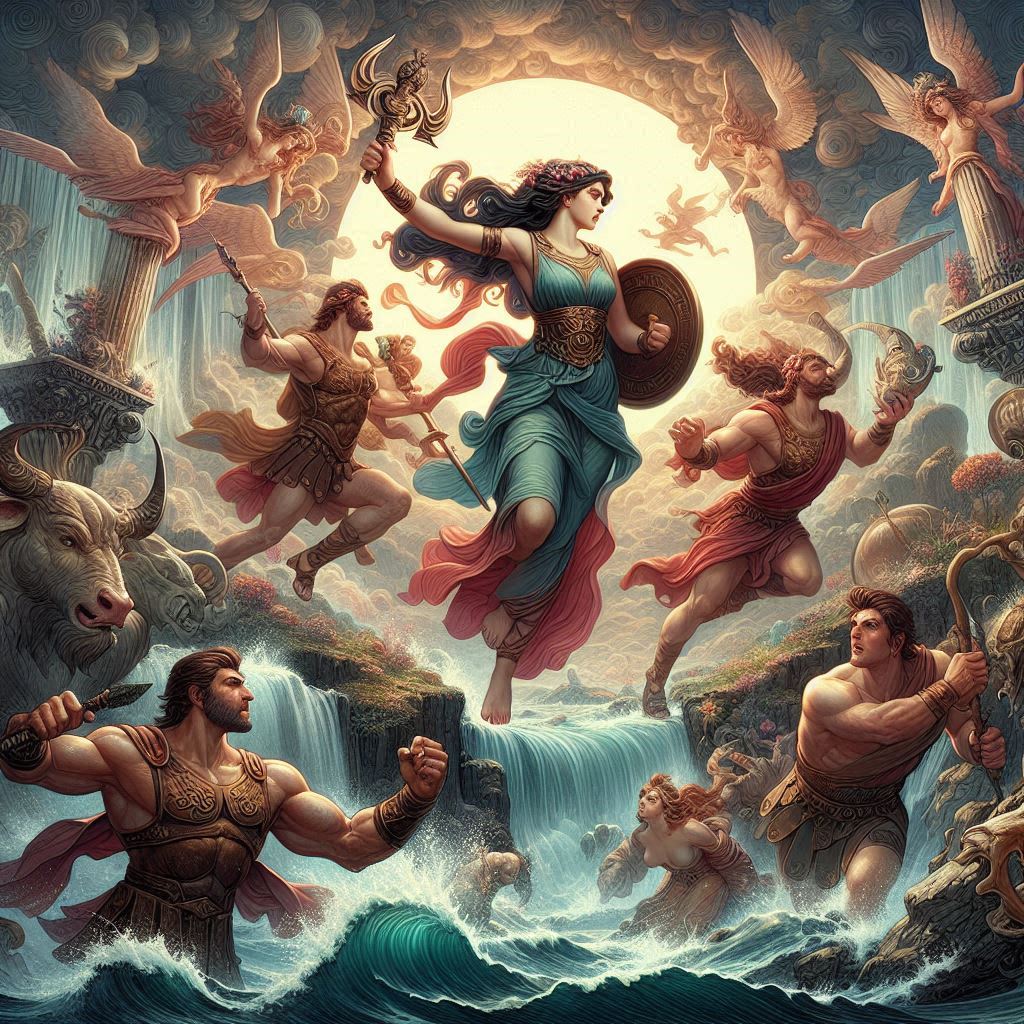The myth of Eros and Psyche is one of the most enchanting and enduring tales in Greek mythology, exploring themes of love, desire, jealousy, and the transformative power of the soul. The story follows the journey of Psyche, a mortal woman of unparalleled beauty, and Eros, the mischievous god of love and desire, as they navigate trials, tribulations, and divine interventions to unite in an immortal union. Their mythological romance, filled with obstacles, sacrifices, and transcendent love, has captivated audiences for centuries and continues to resonate with themes of passion, redemption, and the quest for true intimacy.
The tale of Eros and Psyche begins with Psyche, the youngest and most beautiful daughter of a king, whose radiant appearance inspires awe and admiration among mortals and immortals alike. However, Psyche’s beauty becomes a source of envy and concern for Aphrodite, the goddess of love and beauty, who feels threatened by the mortal’s allure and popularity. In a fit of jealousy, Aphrodite commands her son Eros, the winged god of love, to shoot Psyche with one of his enchanted arrows, causing her to fall in love with a monstrous and unworthy suitor.
Despite his mother’s orders, Eros becomes captivated by Psyche’s beauty and purity, unable to bring himself to fulfill Aphrodite’s command. Instead, he secretly visits Psyche under the cover of darkness, whispering words of love and devotion to her while concealing his true identity. Psyche, unaware of her mysterious lover’s divine origins, falls deeply in love with him, longing to know his true identity and share her life with him openly.
As Psyche’s longing and curiosity grow, she seeks guidance and counsel from an oracle, who warns her that her destined love will bring both joy and sorrow, pleasure and pain. Undeterred by the prophecy, Psyche continues to pine for her mysterious lover, longing for a deeper connection and a union based on trust, intimacy, and mutual understanding.
Aphrodite, enraged by Psyche’s defiance and Eros’s disobedience, devises a series of trials and challenges to test Psyche’s worthiness and devotion to love. She commands Psyche to perform a series of impossible tasks, including sorting a massive heap of mixed grains, collecting golden fleece from aggressive sheep, and retrieving water from the River Styx in a flask. Each task represents a symbolic trial of Psyche’s perseverance, resilience, and purity of heart, as she overcomes obstacles with determination and divine assistance.
Throughout her trials, Psyche receives aid and guidance from various sources, including ants that help her sort the grains, a reed that advises her on how to safely collect the golden fleece, and an eagle that retrieves the flask of water from the underworld. These acts of divine intervention and assistance underscore the theme of hidden support and unseen forces working in Psyche’s favor, despite the seemingly insurmountable challenges she faces.
One of the most iconic moments in the myth of Eros and Psyche is the “cup of sleep” incident, where Psyche, overcome by curiosity and longing to know her lover’s true identity, disobeys Eros’s warning not to gaze upon him while he sleeps. In a moment of weakness and temptation, Psyche lights a lamp to behold Eros’s face, only to discover the divine beauty of her lover and inadvertently awaken him from his slumber.
Upon discovering Psyche’s betrayal, Eros flees in anger and sorrow, leaving Psyche alone and heartbroken. Psyche, devastated by the loss of her beloved, embarks on a quest to win back Eros’s love and forgiveness, determined to prove her devotion and loyalty. Her journey takes her to the realm of Aphrodite, where she endures further trials and hardships, including a dangerous descent into the underworld to retrieve a beauty ointment from Persephone, the queen of the dead.
Through her trials and sacrifices, Psyche undergoes a profound transformation, growing in wisdom, resilience, and self-awareness. Her journey parallels the archetypal hero’s journey, as she confronts her fears, confronts her own limitations, and ultimately discovers the true nature of love and desire. Her quest for redemption and reunion with Eros becomes a testament to the transformative power of love, forgiveness, and self-discovery.
Meanwhile, Eros, tormented by his separation from Psyche and the realization of his own role in their tragic rift, seeks solace and guidance from his mother Aphrodite. He learns the depth of Psyche’s love and devotion through her trials and sacrifices, recognizing her worthiness and purity of heart. With Aphrodite’s blessing and assistance, Eros sets out to find Psyche and reunite with her, determined to overcome the obstacles and misunderstandings that have kept them apart.
The climactic reunion of Eros and Psyche, orchestrated by divine intervention and the power of their enduring love, serves as the culmination of their mythological journey. Eros, transformed by his experience and newfound appreciation for Psyche’s virtues, embraces her as his beloved wife, elevating her to the status of an immortal goddess and granting her eternal happiness and fulfillment.
The myth of Eros and Psyche offers profound insights into the nature of love, desire, sacrifice, and redemption. It explores the complexities of human relationships, the consequences of jealousy and mistrust, and the transformative power of forgiveness and understanding. Through their trials and tribulations, Eros and Psyche emerge as archetypal figures of enduring love and devotion, inspiring countless interpretations, adaptations, and artistic representations throughout history.
The myth also carries universal themes and lessons that resonate across cultures and ages, reminding us of the timeless quest for true intimacy, connection, and the search for the soulmate who completes us. The enduring popularity and relevance of the tale of Eros and Psyche attest to its enduring appeal and timeless wisdom, offering a glimpse into the mysteries of the human heart and the transcendent power of love.
